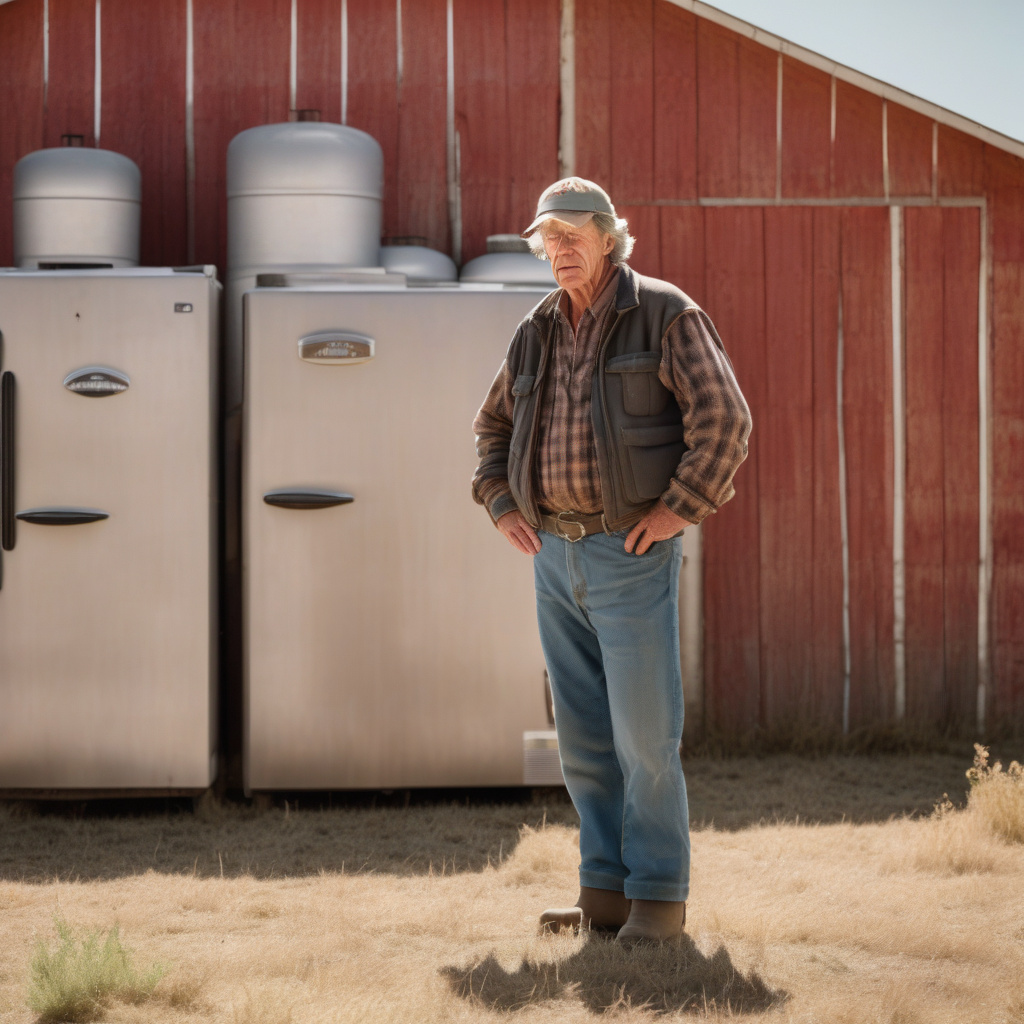On-Farm Vaccine Fridges: A Critical Health Risk for Livestock
A recent study has shed light on a concerning issue plaguing the agricultural sector – the inadequate storage of vaccines on farms. The research revealed that a significant majority of on-farm vaccine fridges fail to maintain the necessary cool temperatures required to preserve critical medicines effectively. This oversight not only jeopardizes the efficacy of the vaccines but also poses a serious threat to livestock health and welfare.
The study, which focused on the storage practices of on-farm vaccine fridges, highlighted a widespread problem that could have far-reaching implications for the agricultural industry. Vaccines are essential tools in preventing and controlling diseases in livestock, safeguarding animal health, and ensuring food safety. However, the efficacy of these vaccines is heavily dependent on proper storage conditions, particularly temperature control.
According to the findings, a concerning number of on-farm vaccine fridges are failing to meet the recommended temperature requirements for storing vaccines. This failure compromises the potency and effectiveness of the vaccines, rendering them less effective in protecting livestock against diseases. Moreover, the compromised vaccines can potentially lead to treatment failures, outbreaks of diseases, and economic losses for farmers.
The consequences of inadequate vaccine storage extend beyond the immediate impact on livestock health. Inaccurate dosing due to ineffective vaccines can contribute to the development of antimicrobial resistance, posing a broader public health risk. Furthermore, outbreaks of preventable diseases among livestock can disrupt supply chains, increase production costs, and erode consumer trust in the agricultural industry.
Addressing the issue of on-farm vaccine fridge failures requires a multi-faceted approach that involves education, awareness, and investment in infrastructure. Farmers and livestock producers need to be informed about the importance of proper vaccine storage and the potential risks associated with inadequate practices. Training programs and guidelines should be developed to help farmers understand the best practices for vaccine storage and handling.
In addition to education, investments in reliable and temperature-controlled storage facilities are essential to ensure the effectiveness of vaccines. Modernizing on-farm vaccine fridges with advanced temperature monitoring systems can help farmers maintain the optimal conditions for storing vaccines. Regular maintenance and calibration of refrigeration equipment are also crucial to prevent temperature fluctuations that could compromise vaccine quality.
Collaboration between agricultural stakeholders, government agencies, and veterinary professionals is key to implementing effective solutions to address the issue of on-farm vaccine fridge failures. By working together to raise awareness, provide support, and improve infrastructure, the agricultural industry can mitigate the risks associated with inadequate vaccine storage and uphold the health and welfare of livestock.
In conclusion, the findings of the study underscore the urgent need to address the shortcomings in on-farm vaccine storage practices. By prioritizing proper vaccine storage, the agricultural sector can enhance disease prevention efforts, protect livestock health, and ensure the sustainability of food production systems. Investing in the integrity of vaccine storage is not just a matter of animal health but a critical aspect of safeguarding public health and maintaining the resilience of the agricultural industry.
#OnFarmVaccineFridges, #LivestockHealth, #VaccineStorage, #AgriculturalInnovation, #PublicHealthRisk











